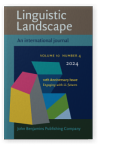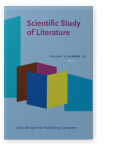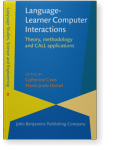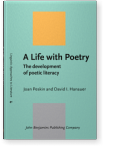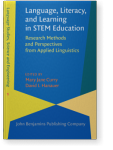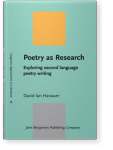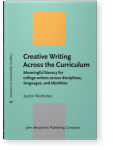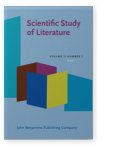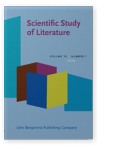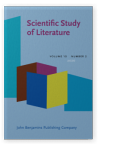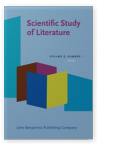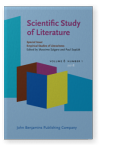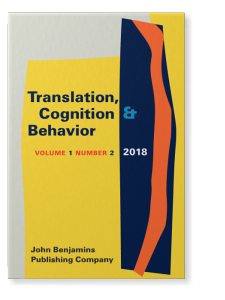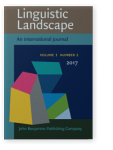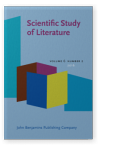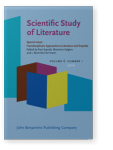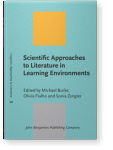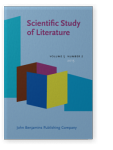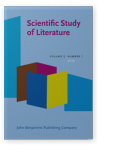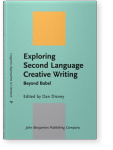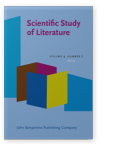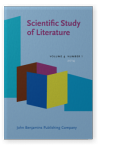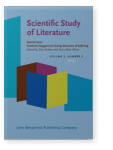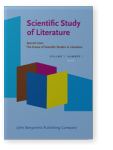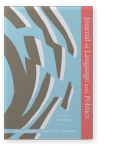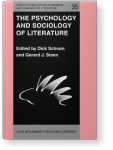David I. Hanauer
List of John Benjamins publications for which David I. Hanauer plays a role.
Journals
Book series
Titles
A Life with Poetry: The development of poetic literacy
Joan Peskin and David I. Hanauer
[Linguistic Approaches to Literature, 41] 2023. x, 194 pp.
Subjects Cognition and language | Theoretical linguistics | Theoretical literature & literary studies | Writing and literacy
Language, Literacy, and Learning in STEM Education: Research Methods and Perspectives from Applied Linguistics
Edited by Mary Jane Curry and David I. Hanauer
[Language Studies, Science and Engineering, 1] 2014. xvi, 180 pp.
Subjects Applied linguistics | Writing and literacy
Poetry as Research: Exploring second language poetry writing
David I. Hanauer
[Linguistic Approaches to Literature, 9] 2010. xiii, 164 pp.
Subjects Applied linguistics | Language acquisition | Writing and literacy
2022 Foreword Creative Writing Across the Curriculum: Meaningful literacy for college writers across disciplines, languages, and identities, Nicholes, Justin, pp. xv–xvii | Foreword
2021 Editorial: Extending multimodality in the Scientific Study of Literature Scientific Study of Literature 11:1, pp. 1–2 | Editorial
2020 Utilizing empirical methods to investigate theoretical claims Scientific Study of Literature 10:2, pp. 165–166 | Editorial
2019 Editorial: Widening the discussion of surface literary forms Scientific Study of Literature 9:1, pp. 1–2 | Editorial
2018 Intermediate states of literariness: Poetic lining, sociological positioning, and the activation of literariness Empirical Studies of Literariness, Salgaro, Massimo and Paul Sopčák (eds.), pp. 114–134 | Article
This study utilizes texts which sit between the literary and non-literary to explore the outcomes and mechanisms of literariness. Literariness can be activated by (a) linguistic foregrounding and (b) paratextual specification. In a 2 × 2 design, manipulated versions of two soldier narratives… read more
2018 Introduction to the special issue Empirical Studies of Literariness, Salgaro, Massimo and Paul Sopčák (eds.), pp. 1–5 | Introduction
2016 General Editor’s Introduction Transdisciplinary Approaches to Literature and Empathy, Sopčák, Paul, Massimo Salgaro and J. Berenike Herrmann (eds.), p. | Article
2016 Chapter 11. ESL students’ perceptions of creative and academic writing Scientific Approaches to Literature in Learning Environments, Burke, Michael, Olivia Fialho and Sonia Zyngier (eds.), pp. 213–226 | Article
This chapter provides a small scale, qualitative study of ESL students’ perceptions of positive and negative creative and academic writing experiences. Previous research has suggested that creative writing provides a more positive experience than academic writing and involves a different set of… read more
2015 New departures and classic questions in the scientific study of literature Scientific Study of Literature 5:2, pp. 137–138 | Article
2015 Editorial Scientific Study of Literature 5:1, pp. 1–2 | Article
2015 Beauty judgements of non-professional poetry: Regression analyses of authorial attribution, emotional response and perceived writing quality Scientific Study of Literature 5:2, pp. 183–199 | Article
The process of reading and writing poetry is increasingly conducted by non-professionals. The current study utilized a series of regression models to explore the mechanism through which beauty judgements of non-professional poetry are made. The analysis addressed the relationships among the… read more
2014 Chapter 10. Facilitating STEM education through interdisciplinarity: Funding, science, and applied linguistics Language, Literacy, and Learning in STEM Education: Research Methods and Perspectives from Applied Linguistics, Curry, Mary Jane and David I. Hanauer (eds.), pp. 167–178 | Article
There is increasing pressure for STEM education to reform in the direction of student-centered learning approaches, active learning, interdisciplinarity, and data-driven evaluations and assessments of student learning. These requirements derive from the need for STEM education to facilitate… read more
2014 Chapter 1. Appreciating the beauty of second language poetry writing Exploring Second Language Creative Writing: Beyond Babel, Disney, Dan (ed.), pp. 11–22 | Article
This chapter presents a very personal view of a pedagogical approach to the second language writing classroom. This approach places human expression at its center, sees L2 writing pedagogy as involving the extension of expressive abilities, utilizes the genre of poetry and values the aesthetic… read more
2014 Questioning assumptions in literary reading Scientific Study of Literature 4:2, pp. 123–124 | Article
2014 Interdisciplinary and innovation Scientific Study of Literature 4:1, pp. 1–2 | Article
2014 Chapter 3. A genre analysis of student microbiology laboratory notebooks Language, Literacy, and Learning in STEM Education: Research Methods and Perspectives from Applied Linguistics, Curry, Mary Jane and David I. Hanauer (eds.), pp. 27–42 | Article
This chapter reports on a qualitative analysis of student laboratory notebooks in a professional microbiology laboratory. The study explored the genre characteristics of laboratory notebooks and organized these characteristics according to social functions, models of notebook completion, and types… read more
2014 Chapter 1. Integrating applied linguistics and literacies with STEM education: Studies, aims, theories, methods, and forms Language, Literacy, and Learning in STEM Education: Research Methods and Perspectives from Applied Linguistics, Curry, Mary Jane and David I. Hanauer (eds.), pp. 1–8 | Article
This chapter describes the impetus for this collection of papers and provides an overview of the ways in which applied linguistics and literacies can be integrated with the fields of science, technology, engineering, and mathematics (STEM). We first explore the value of applied linguistics and… read more
2013 The scope of SSOL: A discussion of the boundaries of science and literature Aesthetic Engagement During Moments of Suffering, Kuiken, Don and Mary Beth Oliver (eds.), pp. 169–174 | Article
2011 The scientific study of poetic writing The Future of Scientific Studies in Literature, pp. 79–87 | Article
This aim of this brief paper is to promote the scientific study of creative writing and make it an integral part of the research agenda of the scientific study of literature. This paper focuses on the genre of poetry and is organized around three basic questions: (1) What do we currently know about… read more
2011 The discursive construction of the separation wall at Abu Dis: Graffiti as political discourse Journal of Language and Politics 10:3, pp. 301–321 | Article
The article analyses the discursive function of graffiti on the separation wall in the contested space of Abu Dis on the boundary between Jerusalem and the Occupied Territories. This study explores the role of graffiti as micro-level, political discourse designed to influence national and… read more
2001 What we know about reading poetry: Theoretical positions and empirical research The Psychology and Sociology of Literature: In honor of Elrud Ibsch, Schram, Dick and Gerard J. Steen (eds.), pp. 107–128 | Article
